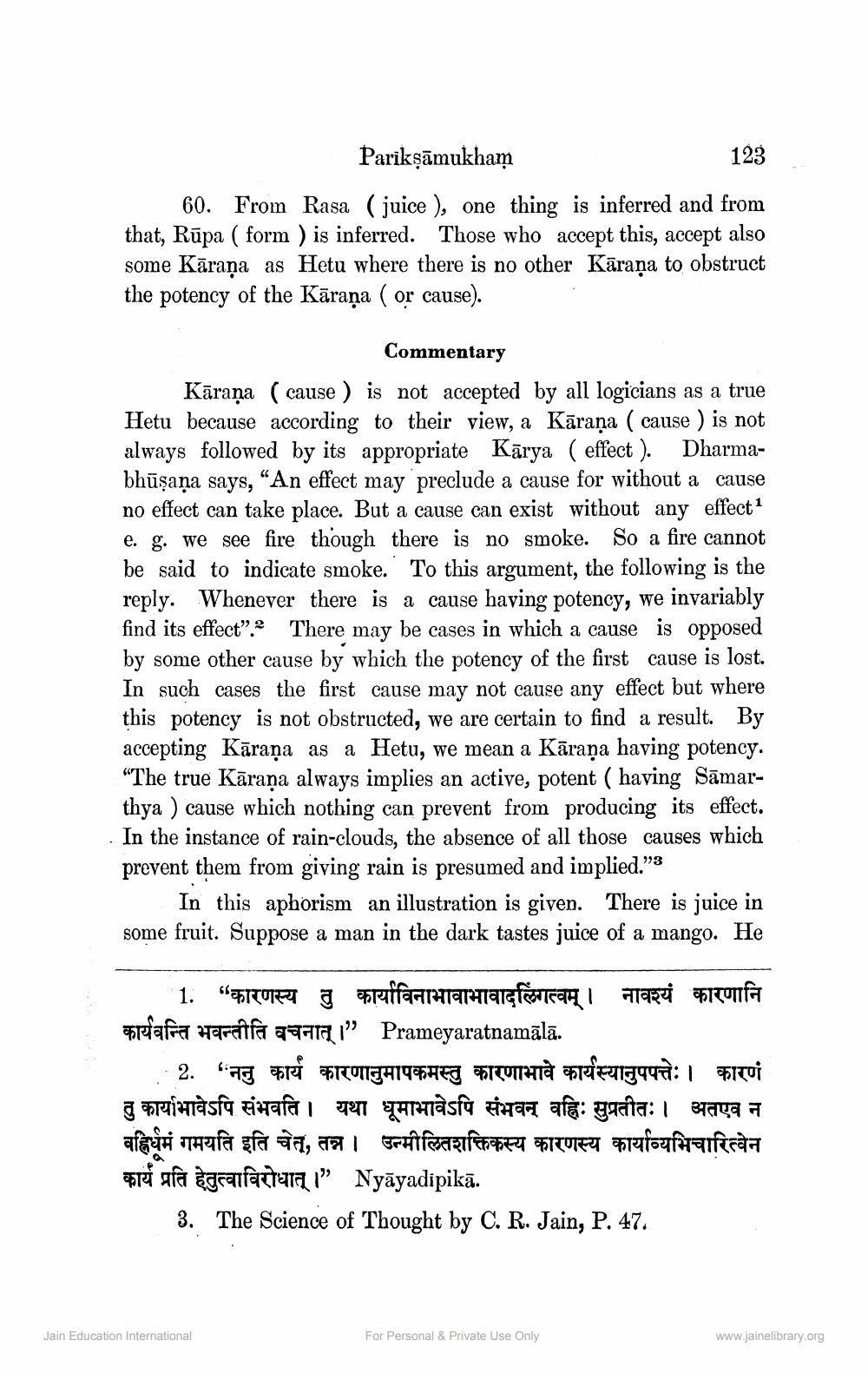________________
Parikşāmukham
123 60. From Rasa (juice ), one thing is inferred and from that, Rūpa ( form ) is inferred. Those who accept this, accept also some Kāraṇa as Hetu where there is no other Kāraņa to obstruct the potency of the Kāraṇa ( or cause).
Commentary
Kāraņa ( cause ) is not accepted by all logicians as a true Hetu because according to their view, a Kāraṇa ( cause ) is not always followed by its appropriate Kārya ( effect ). Dharmabhūşaņa says, “An effect may preclude a cause for without a cause no effect can take place. But a cause can exist without any effect 1 e. g. we see fire though there is no smoke. So a fire cannot be said to indicate smoke. To this argument, the following is the reply. Whenever there is a cause having potency, we invariably find its effect”2 There may be cases in which a cause is opposed by some other cause by which the potency of the first cause is lost. In such cases the first cause may not cause any effect but where this potency is not obstructed, we are certain to find a result. By accepting Kāraña as a Hetu, we mean a Kāraṇa having potency. "The true Kāraņa always implies an active, potent ( having Samarthya ) cause which nothing can prevent from producing its effect. In the instance of rain-clouds, the absence of all those causes which prevent tủem from giving rain is presumed and implied.”3
In this aphorism an illustration is given. There is juice in some fruit. Suppose a man in the dark tastes juice of a mango. He
1. “कारणस्य तु कार्याविनाभावाभावादलिंगत्वम् । नावश्यं कारणानि prefafa Haraft for a watai" Prameyaratnamālā.
... 2. "ननु कार्य कारणानुमापकमस्तु कारणाभावे कार्यस्यानुपपत्तेः। कारणं तु कार्याभावेऽपि संभवति। यथा धूमाभावेऽपि संभवन् वह्निः सुप्रतीतः। अतएव न वहिधूमं गमयति इति चेत्, तन्न । उन्मीलितशक्तिकस्य कारणस्य कार्याव्यभिचारित्वेन poral afar grallattarai" Nyāyadipikā.
3. The Science of Thought by C. R. Jain, P. 47.
Jain Education International
For Personal & Private Use Only
www.jainelibrary.org




